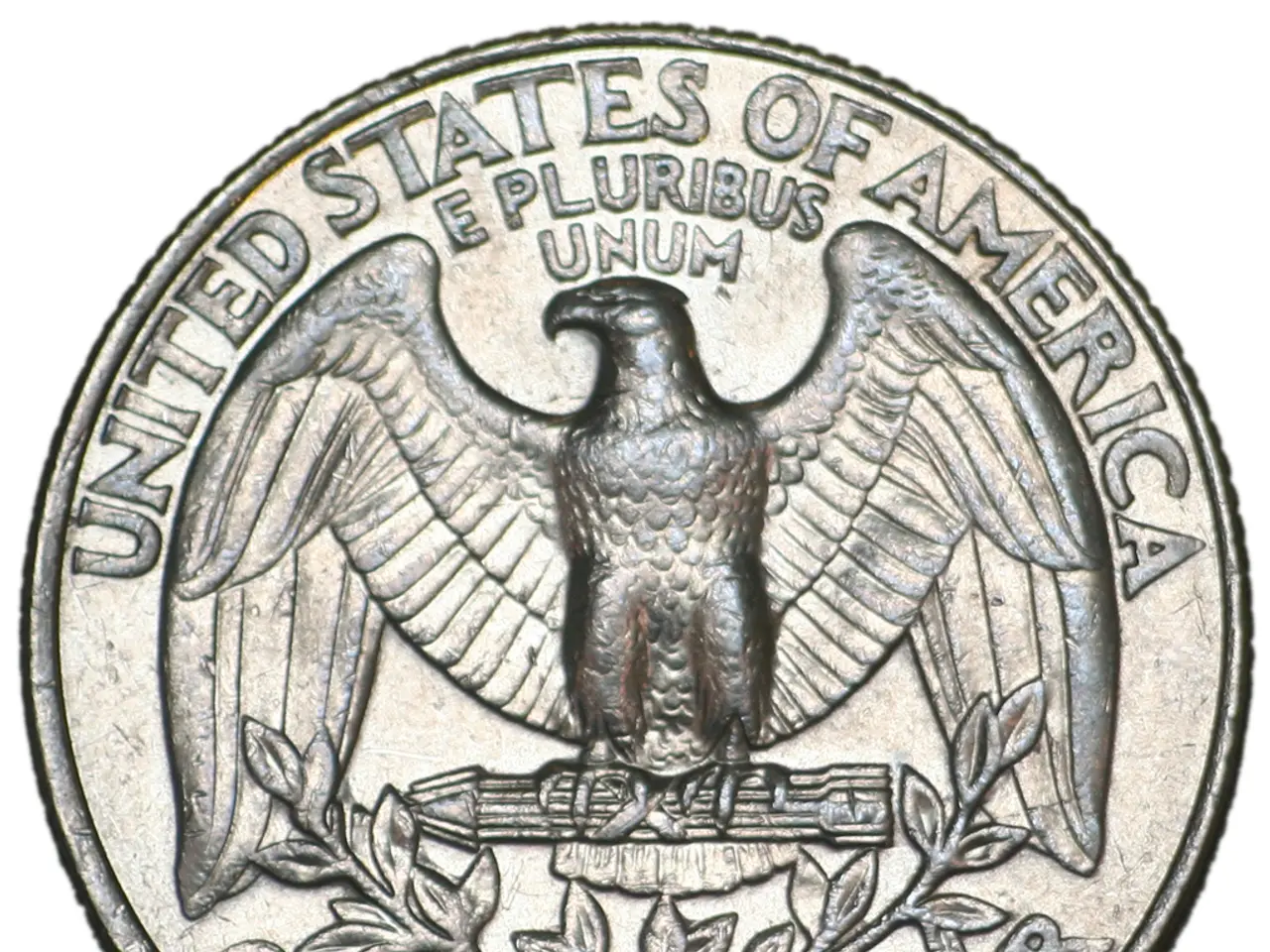Berkshire Hathaway's Q2 Performance Unveiled
In the latest financial report, Berkshire Hathaway, the multinational conglomerate helmed by legendary investor Warren Buffett, has reported a significant drop in profits and earnings per share (EPS) for the second quarter of 2025.
The net earnings for Q2 2025 stood at $12.37 billion, a stark contrast to the $30.35 billion reported in the same quarter last year. EPS per Class A share fell sharply from $21,122 in Q2 2024 to $8,601 in Q2 2025[1][2][3].
Key reasons for the earnings decline include a reduction in investment gains, a write-down on the Kraft Heinz investment, and mixed performance in the insurance segment. Investment gains fell to about $6.36 billion in Q2 2025 from $23.86 billion in Q2 2024, a major factor dragging down profitability[2][3]. Berkshire took a $3.76 billion after-tax impairment charge on its stake in Kraft Heinz, which materially impacted net income for the quarter[1].
The mixed performance in the insurance segment also contributed to the earnings decline. While GEICO’s underwriting earnings increased to $1.82 billion, the primary insurance group’s pretax earnings dropped from $279 million to $63 million, and the reinsurance group's earnings fell from $782 million to $650 million[1].
Operating earnings decreased modestly from $11.6 billion to $11.2 billion, and total revenues dropped slightly from $93.65 billion to $92.52 billion year on year[2].
Regarding the impact on Berkshire Hathaway's stock performance, the search results do not provide explicit information about the stock price reaction immediately following the Q2 report. However, given the steep earnings decline mainly due to large non-operational charges (investment impairments), along with reduced investment gains, stock market reaction would likely reflect investor concerns about short-term profitability and earnings volatility. Historically, Berkshire's stock tends to emphasize longer-term operating performance rather than quarterly fluctuations in investment valuations.
Despite the significant drop in profits, the Berkshire Hathaway share is showing relative robustness at the start of the week, trading only 0.7 percent lower pre-market. The tech sector in New York, on the other hand, experienced significant losses.
Investors may view the Kraft Heinz charge as a non-recurring item, somewhat mitigating stock impact. Berkshire Hathaway sold stocks worth $4.5 billion in Q2, marking the eleventh consecutive quarter as a net seller of stocks[4].
Warren Buffett, in a recent statement, warned about the potential adverse effects of the trade dispute on Berkshire Hathaway's operations and investments[5].
Looking ahead, details of the changes in Berkshire Hathaway's portfolio will be revealed in mid-August via 13F filings with the US SEC. The 13F Reports newsletter, to be released at the end of August, will provide information on the top 50 stocks with the highest potential based on the investments of major players[6].
The Berkshire Hathaway share remains a stability anchor in every portfolio, according to DER AKTIONÄR, and investors are advised to let the profits run[7].
[1] Berkshire Hathaway Q2 2025 Earnings Release [2] Berkshire Hathaway Q2 2025 Earnings Transcript [3] CNBC: Berkshire Hathaway Q2 Earnings Miss Estimates [4] Reuters: Berkshire Hathaway sells $4.5 billion in stocks in Q2 [5] Bloomberg: Buffett Warns on Trade Dispute Impact on Berkshire Hathaway [6] 13F Reports: Top Stocks to Watch in August [7] DER AKTIONÄR: Berkshire Hathaway Share Remains a Stability Anchor in Every Portfolio
- The decline in Berkshire Hathaway's earnings can be attributed largely to a drop in investment gains, a write-down on the Kraft Heinz investment, and mixed performance in the insurance segment.
- Given the steep earnings decline and reduced investment gains, the stock market reaction may reflect investor concerns about short-term profitability and earnings volatility, despite the Berkshire Hathaway share showing relative robustness.








